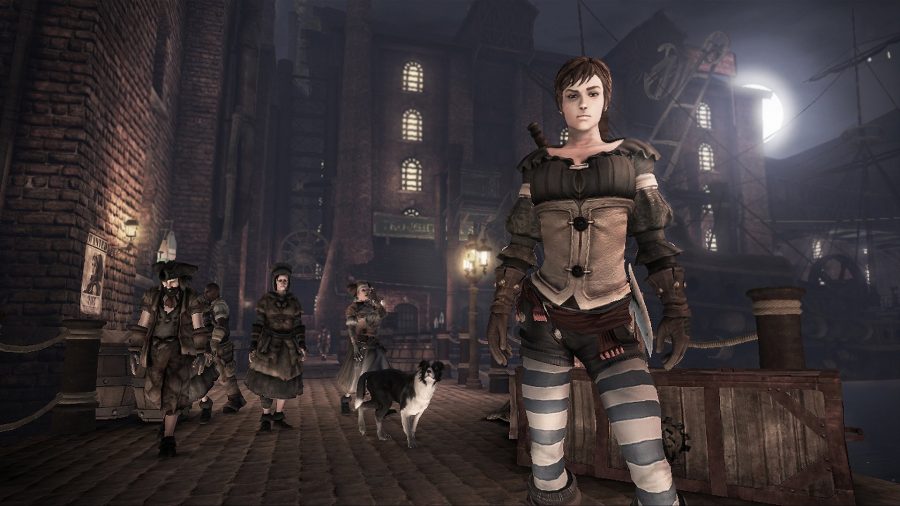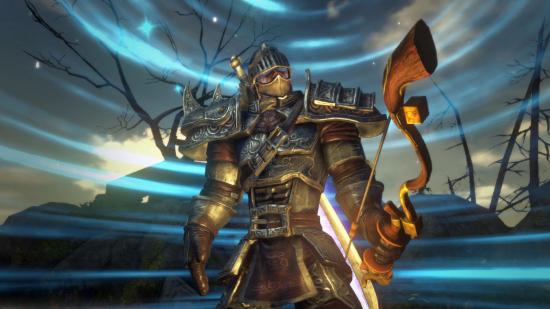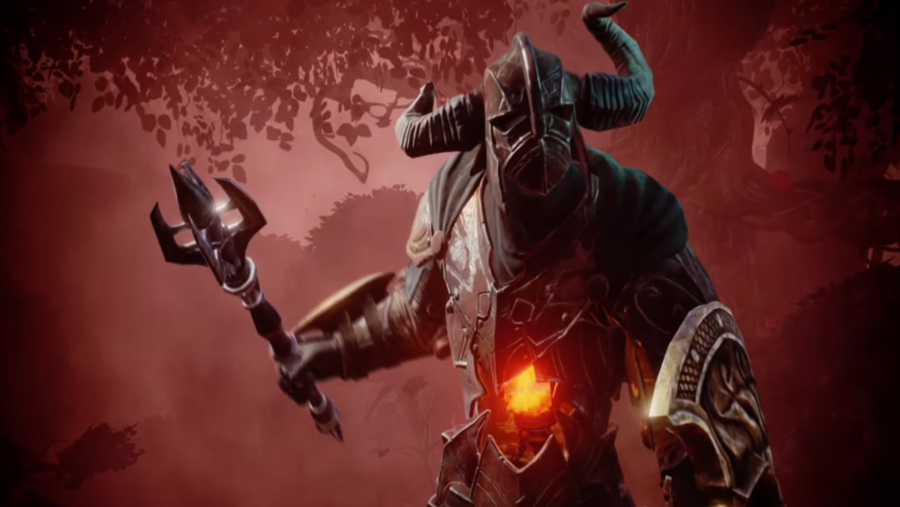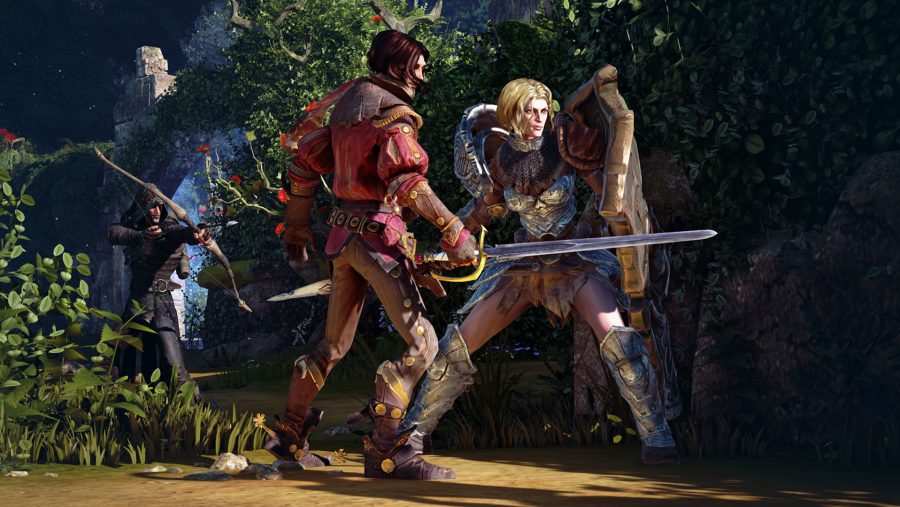There are some great fantasy RPG games out there. The Witcher 3; The Elder Scrolls V: Skyrim; Divinity: Original Sin 2; and Dragon Age, to name a few. But one sad day in 2016 marked the end of something truly special for the genre – the closure of Lionhead Studios, developer of the Fable series.
Bursting onto PC in 2005, Lionhead’s extended version of 2004 Xbox game, Fable: The Lost Chapters, brought something both fresh but comfortingly familiar to the RPG scene in the form of Heroes, the glorious world of Albion, and chicken chasing.
Followed by Fable II (on Xbox), Fable III, an Anniversary remaster, and a handful of other spin-off games, the series came to a close when co-op romp Fable Legends was cancelled in 2016. However, it appears all is not lost for us stalwart Fable fans – it’s been rumoured that Fable 4 is in the works at Forza Horizon studio Playground Games, and could be revealed at E3 2020. Here are four reasons why I really hope next year will indeed mark the return of Fable.
Here, in no uncertain terms, is why:
Fantasy has its own Fable flavour
The Fable series occupies a unique space in the fantasy RPG genre, with its own distinctive lore and flavour. For the most part, Fable doesn’t draw on the more Tolkienesque aspects that populate many of its peers. There are no elves, dwarves, or mages – the closest to the latter is a Will user, but it’s not really a character class – the mana-based skills can be simply picked up and dropped as desired. There are no great, raging wars threatening widespread destruction to tackle.
Instead, you get hobbes, balverines, banshees, hollow men, and a wooden chest with an attitude problem. Each game presents a rogue baddie to fight – Jack of Blades, Lucien Fairfax, or The Crawler. This concentrates your Heroes’ adventures into a charmingly simple narrative – defeat the baddie; save Albion – as well as adding a refreshingly individual take on the genre’s fantasy underpinnings.
This is enhanced by the series’ setting, which spans around 550 years (Legends not included), charting the Heroes’ rise, fall, and rise again in a world resembling medieval Europe through to one peppered with factories and powered by steam. While Fable III might have divided some opinions, its meshing of fantasy with a parallel interpretation of the 19th century’s industrial revolution offers a unique and memorable twist on the genre. The Fable flavour of fantasy is a standout, and I miss it.
It has a great sense of humour
If you’ve ever played any of the main Fable titles you’ll know that they’re really funny. While comparable titles like Divinity: Original Sin 2 have a certain sense of humour (talking to farmyard animals via the Pet Pal talent is a major source of comedy), most fantasy RPGs aren’t really all that funny. Enter Fable.
Lionhead’s series offers a supreme blend of wit and unashamed toilet humour. The first example seasoned players will conjure is the game’s expressions system. A way of interacting with the locals and getting them to love or loathe you, Fable’s expressions have included options like playing the lute, tap dancing, and doing a sock puppet routine – but there’s also been belching, farting, and ‘kiss my ass’-ing, too. Cheap laughs, sure, but something you don’t often find in RPGs, and something to be cherished.
Fable’s humour extends much further, however. Items, weapons, garments, and foodstuffs usually come with brief written descriptions, easily missed but well worth a read. Some of my favourites include Java Dye: (‘Cruelty-free: no actual java was harmed in the creation of this robust dye. Made from crushed squirrels’), a Homegrown Carrot (‘Stiff, straight, and healthy, it’s probably inappropriate to carry in your pocket’), and a Crumbly Blueberry Pie (‘Tastes like being the last person to know about a party’).
Not convinced? Check out these Fable II food and dye descriptions for some chuckles.
Combat is fun
Turn-based, first-person, or otherwise, combat can make or break an RPG, and the Fable games are no exception – but not in the way you might expect. Most RPGs feature deep combat systems with plenty of options for levelling, crafting superlative weapons, and dealing impressive finishers. While combat varies a bit from title to title – with Fable offering the more traditional swords and bows and its sequels incorporating guns – a common theme throughout is that the combat is pretty stripped back.
There are three main combat styles on the table – Melee, Ranged, and Will – each covering individual skills you can level up depending on how many experience orbs of those types you gobble up after each scrimmage. Each skill has an effect on your Hero’s appearance and be learned and unlearned again if you like, giving you XP back.
Attacks with any of these are simple – mapped to single button clicks, and made easier by locking onto enemies and auto-switching between them. Meaty and low effort, the Fable games’ combat systems are really good fun and strike a balance between being easy to get the hang of and satisfying to plug away at – something you probably wouldn’t expect or hope for from most RPGs, but a pleasing alternative to the more intricate systems of other RPG big hitters. There are some layers of customisation around Will spells – for example, Fable III offers spell weaving – but once you’re decided on your combo, the combat is uncomplicated.
Best of all, you can’t really die, so raging into battles is low risk. Worst case scenario is you get knocked out, lose some XP, and get a nifty new scar to sport. Neat.

The Dog(s)
Fable isn’t the first RPG series to feature a canine companion to accompany you in your travels. Fallout 4 has Dogmeat; Skyrim has Meeko (other dogs are available). But Fable 4’s doggo pals are something else. Featuring in the series from Fable II onwards, not only are they unquestioningly ready to help fight your battles against bandits, hordes of hollow men, and gaggles of hobbes, they’ll take on the biggest baddies of them all right alongside you. Spoiler alert – one even leaps in your way to take a bullet. Sob. I’m not crying, you’re crying.
You have the choice to sacrifice them for ‘the needs of the many’ or a ton of gold, but the only acceptable choice, I’m sure you’ll agree, is ‘the needs of the few’ – ie resurrecting doggo (and your family, I guess).
Not only is your labrador great in a fight, but he’s also a walking, drooling navigation system. The Fable games feature a golden, glowing breadcrumb trail leading you to your objective, and your dog helpfully runs just a little ahead, further highlighting the way – and best of all, barking whenever he spots a dig spot laden with loot, or an enemy nearby.
Actually, best, best of all, is that he can also learn tricks, thanks to books you can find scattered around Albion. Playing dead, begging, backflipping, and even targeted urination – there’s nothing this little pupper can’t do. He’s a Good Boy and exactly the kind of companion every RPG should offer.



